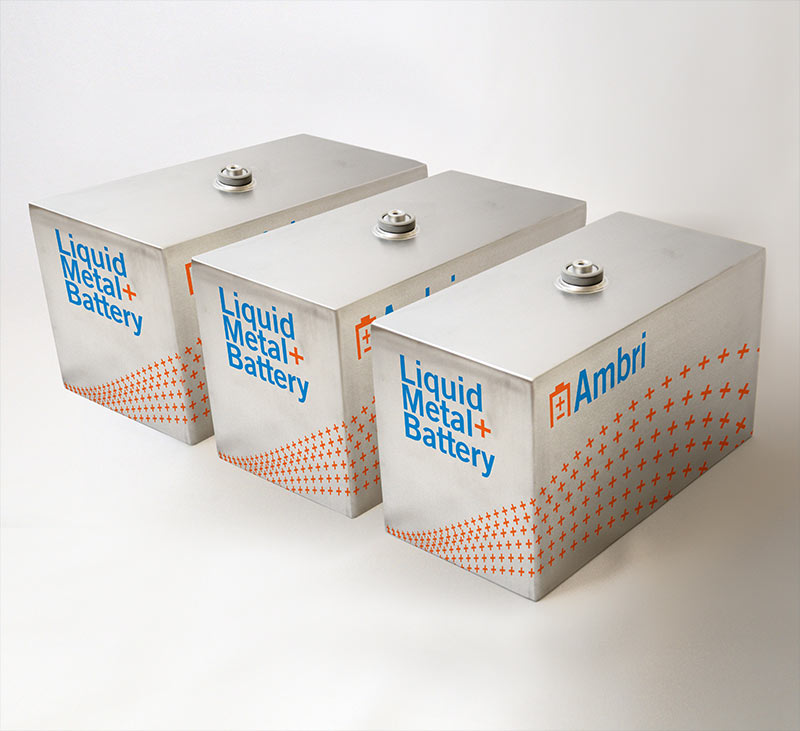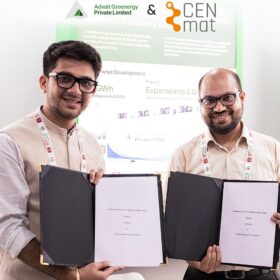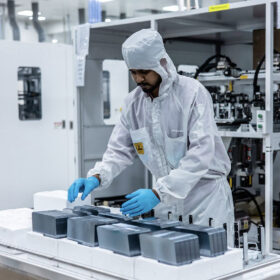Reliance New Energy Solar, the clean energy arm of Reliance Industries Ltd (RIL), today announced it would invest US$ 50 million in Ambri, a US-based liquid metal battery startup incubated at Massachusetts Institute of Technology (MIT). The investment gives Reliance New Energy Solar 42.3 million shares of preferred stock in Ambri.
As part of the transaction, Reliance New Energy Solar and Ambri will partner to develop and manufacture Ambri’s batteries in India.
The investment follows Reliance Industries’ announcement earlier this to build an energy storage giga-fab in Jamnagar. “We are exploring new and advanced electrochemical technologies that can be used for such large-scale grid batteries to store the energy that we will create. We will collaborate with global leaders in battery technology to achieve the highest reliability for round-the-clock power availability through a combination of generation, storage, and grid connectivity,” chairman and managing director Mukesh Ambani had announced.
The US$ 50 million funding by Reliance New Energy Solar is part of an overall $144 million raised by Ambri in its latest round of funding. Other strategic investors leading the Ambri funding round included private investment manager Paulson & Co. Inc. and Ambri’s largest shareholder Bill Gates. New investors included Fortistar, Goehring & Rozencwajg Associates, Japan Energy Fund, and others.
Ambri will use the funds to commercialize and grow its long-duration energy storage systems business globally. The developer uses antimony in its battery chemistry and has entered into a long-term antimony supply agreement with Perpetua Resources, an Idaho-based natural resource company backed by Paulson & Co.
The technology
Ambri’s liquid metal battery cells utilize commonly available electrode materials, which, the battery developer claims, cost one-third of those used in nickel-manganese-cobalt oxides (NMC) lithium-ion cells. These comprise a liquid calcium alloy anode, a molten salt electrolyte, and a cathode made of solid particles of antimony.
The manufacturing of Ambri cells is also far simpler, requiring fewer steps and one-third to half the capital expense per MWh of production than lithium-ion.
The Ambri batteries are built as ready-to-install DC containerized systems and can cater to projects that require energy storage systems from 10 MWh to over 2 GWh. These are claimed to be capable of operating safely in any climatic condition without requiring supplemental air conditioning and built to last for more than 20 years with minimal degradation.
Ambri systems are particularly suited for high-usage applications, such as shifting energy from daytime solar generation to evening and morning peak load times. The company is securing customers for large-scale projects with commercial operations in 2023 and beyond.
This content is protected by copyright and may not be reused. If you want to cooperate with us and would like to reuse some of our content, please contact: editors@pv-magazine.com.









hese are claimed to be capable of operating safely in any climatic condition without requiring supplemental air conditioning and built to last for more than 20 decades with minimal degradation.
Wow! 20 decades!
Is that a misprint?
Thanks James, that was a misprint. The error corrected now to read years!!